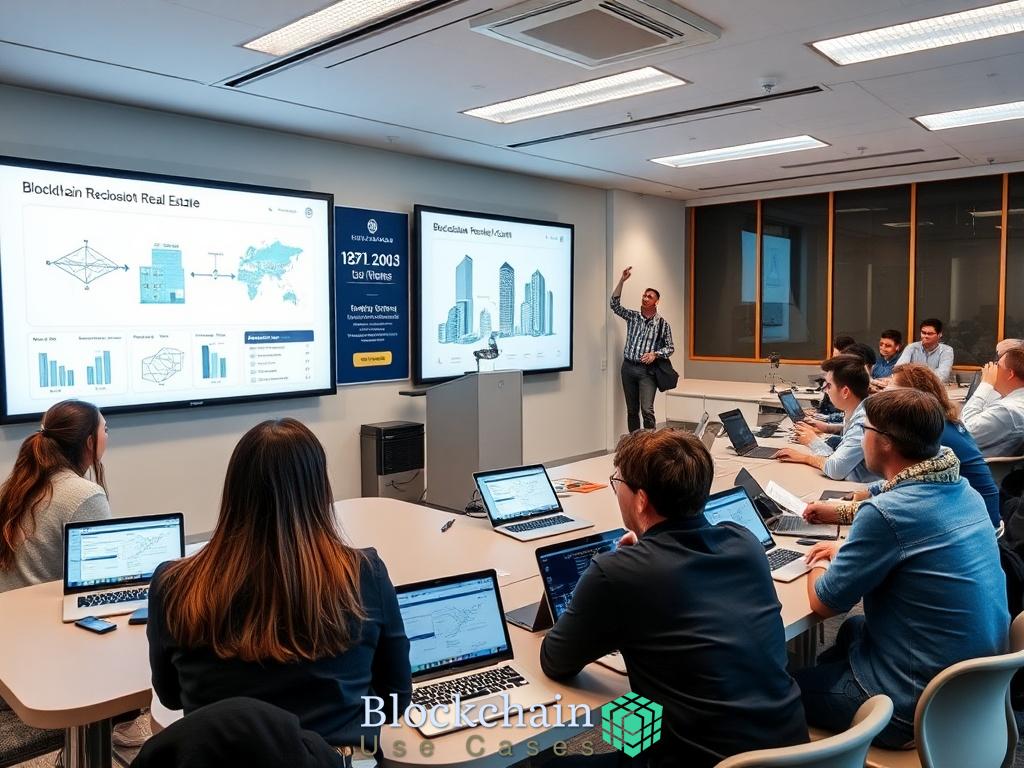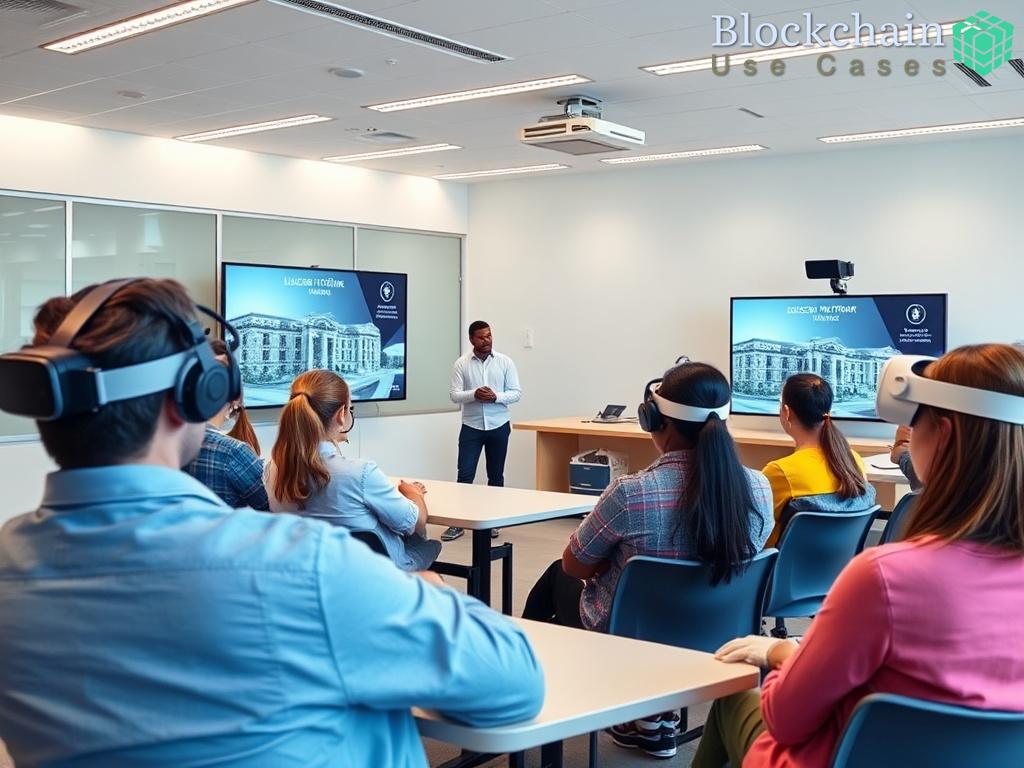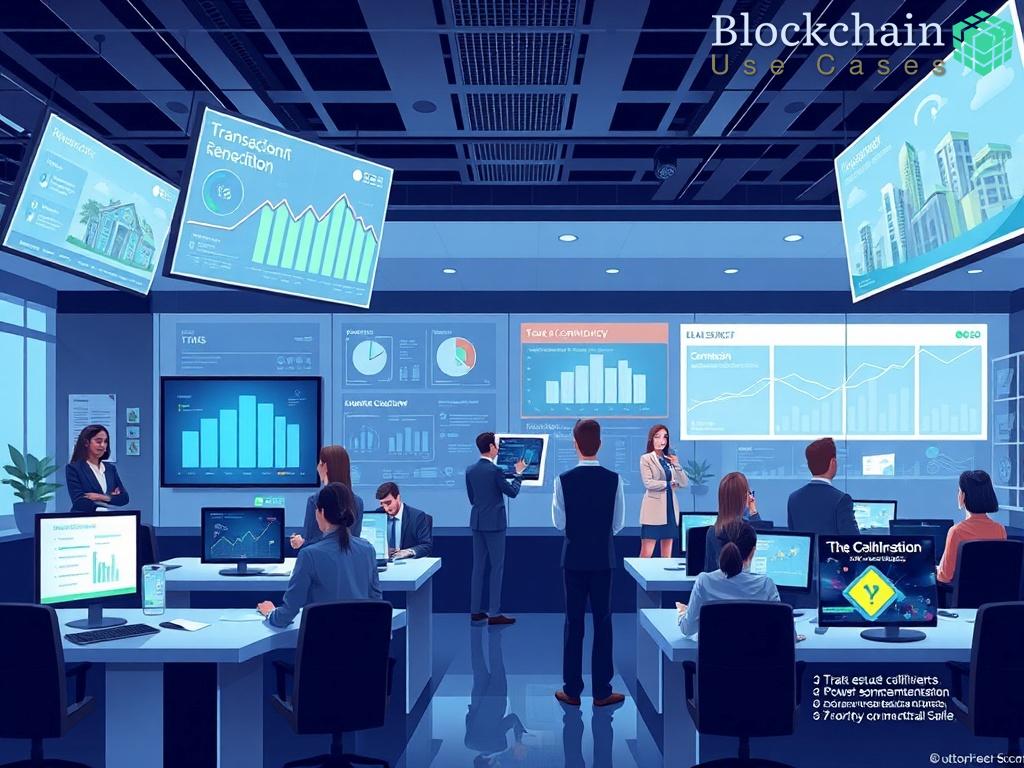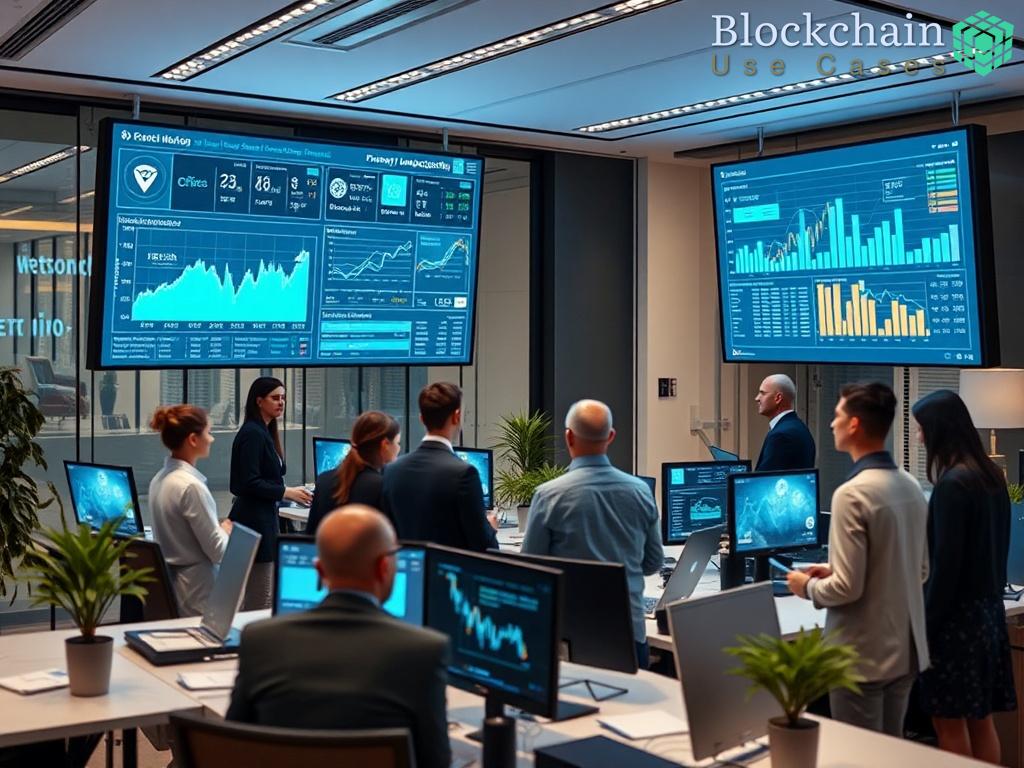The Role of Blockchain in Real Estate Education

Transforming Trust in Education
The advent of blockchain technology is reshaping various industries, and real estate education is no exception. With the increasing demand for transparency, security, and trust in educational credentials, blockchain offers a viable solution. By leveraging decentralized platforms, educational institutions can ensure that certificates and qualifications are verifiable and tamper-proof, thus instilling confidence among learners and employers alike.
Decentralized Credentialing: A Game Changer
In traditional systems, verifying educational credentials can be cumbersome and prone to fraud. Blockchain technology allows for the creation of a decentralized ledger that records every transaction, including the issuance of certificates. This innovative approach not only streamlines the verification process but also significantly reduces the potential for fraudulent claims. Below is a comparison of traditional credentialing methods versus blockchain-based systems:
| Criteria | Traditional Credentialing | Blockchain Credentialing |
|---|---|---|
| Verification Time | Days to Weeks | Instant |
| Security | Susceptible to Fraud | Highly Secure |
| Cost | High Administrative Costs | Lower Costs |
| Accessibility | Limited Access | Global Access |
Empowering Learners through Transparency
Blockchain’s immutable nature ensures that once a record is created, it cannot be altered. This characteristic is particularly beneficial in real estate education, where learners’ credentials can be stored on a blockchain, providing a transparent and accessible record of their achievements. This not only empowers learners by giving them control over their credentials but also enhances the trust of employers in the validity of these qualifications. As the industry evolves, the integration of blockchain into real estate education and certification will likely become a standard, further fostering a culture of integrity and reliability.
Decentralized Certification Processes for Real Estate Professionals
The landscape of real estate education is undergoing a transformative shift with the integration of decentralized certification processes. This evolution not only enhances the credibility of educational programs but also aligns with the industry’s growing demand for accountability and authenticity in professional qualifications. By adopting blockchain technology, real estate educators and trainers can ensure a seamless, transparent, and efficient process for issuing and verifying certificates, thus fostering a culture of trust within the profession.
Streamlining Certification with Blockchain
The introduction of decentralized platforms allows for a more efficient approach to credentialing real estate professionals. Traditional methods often involve lengthy verification procedures that can lead to delays in employment or advancement opportunities. In contrast, blockchain technology offers a framework where certificates can be issued and verified in real-time, significantly reducing the turnaround time for prospective employers.
Benefits of Decentralized Certification
Utilizing blockchain for certification not only streamlines processes but also provides multiple advantages that enhance the overall educational experience for real estate professionals. Below is a summary of key benefits:
- Authenticity: Certificates are immutable and can be verified by anyone, ensuring that only legitimate qualifications are recognized.
- Cost-Effectiveness: Reduces administrative costs associated with traditional verification methods, allowing institutions to allocate resources more effectively.
- Accessibility: Provides global access to certifications without geographical limitations, enabling professionals to showcase their qualifications universally.
- Empowerment: Individuals gain ownership of their credentials, allowing them to manage and present their qualifications as they see fit.
A Comparative Analysis of Certification Methods
To better understand the impact of decentralized certification processes, the following table highlights a comparison between traditional certification methods and blockchain-based systems:
| Criteria | Traditional Methods | Blockchain Methods |
|---|---|---|
| Verification Time | Days to Weeks | Instantaneous |
| Fraud Risk | High | Minimal |
| Cost | High | Lower |
| Global Accessibility | Limited | Universal |
| Control Over Credentials | Institutional | Individual |
In conclusion, the move towards decentralized certification processes for real estate professionals not only enhances the integrity of educational credentials but also aligns with the industry’s evolving landscape. As blockchain technology continues to mature, its application in real estate education is poised to become a cornerstone of professional development, ensuring that the next generation of real estate experts is both qualified and trustworthy.
Peer-to-Peer Learning Platforms for Real Estate Training
In the modern landscape of real estate education, peer-to-peer learning platforms are emerging as a revolutionary approach to training and certification. These platforms leverage blockchain technology to create a collaborative environment where learners can share knowledge, experiences, and resources while obtaining verifiable credentials. With a focus on community-driven learning, these decentralized solutions not only enhance educational outcomes but also foster a deeper understanding of real estate practices and principles.
Empowering Collaboration Through Decentralization
The essence of peer-to-peer learning lies in its ability to connect individuals from diverse backgrounds, enabling them to learn from one another. By harnessing decentralized platforms, real estate professionals can engage in collaborative training sessions, workshops, and discussions that are not limited by geographical boundaries. This democratization of knowledge allows for a more inclusive approach to education, where everyone has the opportunity to contribute and benefit.
Key Features of Peer-to-Peer Learning Platforms
Decentralized peer-to-peer learning platforms offer a variety of features that enhance the educational experience for real estate professionals. Here are some notable aspects:
- Real-Time Interaction: Participants can engage in live discussions, ask questions, and provide feedback instantaneously, creating a dynamic learning environment.
- Resource Sharing: Users can share educational materials, case studies, and industry insights, enriching the collective knowledge base.
- Verified Credentials: Utilizing blockchain technology, participants can earn certificates that are secure and easily verifiable, ensuring recognition of their skills and knowledge.
- Mentorship Opportunities: Experienced professionals can mentor newcomers, forging valuable connections that enhance professional growth.
- Global Accessibility: With no geographical limitations, individuals from all over the world can participate, promoting diversity and cross-cultural learning.
Transforming the Future of Real Estate Training
As the real estate industry continues to evolve, the importance of peer-to-peer learning platforms cannot be overstated. They represent a shift towards a more collaborative and transparent educational model, where the focus is on shared experiences and collective growth. By embracing these decentralized solutions, real estate professionals can not only enhance their own skills but also contribute to building a more knowledgeable and competent workforce. The integration of blockchain technology in these platforms ensures that the credentials earned are not just paper certificates, but credible endorsements of one’s capabilities and expertise.
Impact of Smart Contracts on Real Estate Certification
The integration of smart contracts within decentralized platforms is revolutionizing how certification processes are conducted in real estate education and training. These self-executing contracts, governed by the terms of the agreement directly written into code, eliminate the need for intermediaries, thereby enhancing efficiency and reliability in credentialing. As the real estate sector grapples with the challenges of authenticity and verification, smart contracts emerge as a robust solution, streamlining the certification landscape.
Enhancing Efficiency through Automation
Smart contracts automate various aspects of the certification process, significantly reducing the time and resources typically associated with traditional methods. For instance, once a learner completes a course or training module, the smart contract can automatically issue a verifiable digital certificate, negating delays often caused by manual processing. This level of automation not only expedites the journey from education to certification but also ensures that the records are updated in real-time, providing stakeholders with instant access to credentials. The ability to execute transactions seamlessly fosters a more agile educational environment, where learners can confidently showcase their achievements at a moment’s notice.
Building Trust and Transparency
The immutable nature of smart contracts reinforces trust within the real estate certification ecosystem. Each smart contract is stored on a blockchain, ensuring that once a certification is issued, it cannot be altered or tampered with. This transparency is crucial for employers and industry stakeholders, as they can independently verify the authenticity of a candidate’s credentials without relying on potentially biased sources. The decentralized verification process ensures that all parties involved can access the same information, thereby reducing the incidence of fraud and fostering a culture of integrity in the profession. As the landscape of real estate continues to evolve, the reliability afforded by smart contracts will likely play a pivotal role in shaping professional standards.
Empowering Stakeholders with Ownership
Smart contracts not only streamline the certification process but also empower learners by granting them control over their qualifications. With blockchain technology, individuals can manage their digital certificates, deciding who can access their achievements and when. This empowerment is particularly significant in the real estate arena, where professionals often need to demonstrate their credentials to secure opportunities or advance their careers. As learners take ownership of their credentials, they can engage more actively in their professional journeys, fostering a sense of accountability and pride in their accomplishments.
Innovative Assessment Methods in Decentralized Education
The landscape of real estate education is rapidly evolving, driven by the need for advanced assessment methodologies that align with modern learning paradigms. The integration of decentralized platforms not only enhances the educational experience but also facilitates a shift towards innovative assessment methods that cater to diverse learning styles and promote genuine understanding. These innovative approaches are crucial in a field where practical knowledge and credibility play a significant role in professional success.
Adaptive Learning Assessments have emerged as a game-changer in the realm of real estate education. Unlike traditional assessment methods that often rely on standardized testing, adaptive assessments leverage technology to tailor questions based on an individual’s performance. This approach allows learners to progress at their own pace, ensuring that they can demonstrate mastery of concepts before moving on. By utilizing data analytics, decentralized platforms can identify areas where students may struggle, offering personalized resources and support to enhance their learning journey.
In addition to adaptive assessments, peer-reviewed evaluations have gained traction within decentralized education frameworks. This method encourages collaboration among learners, as they assess each other’s work based on established criteria. By engaging in peer review, individuals not only gain valuable feedback but also develop critical thinking and evaluative skills essential for the real estate industry. This collaborative model fosters a sense of community, where learners can share insights and experiences, enhancing the overall educational experience.
Moreover, the incorporation of project-based assessments within decentralized platforms allows students to apply theoretical knowledge to real-world scenarios. These assessments often involve collaborative projects that simulate actual real estate challenges, requiring learners to work in teams to develop solutions. Such projects not only assess individual understanding but also emphasize teamwork and communication skills, which are vital in the real estate sector. Through real-time feedback and peer interaction, learners gain insights that contribute to their professional development.
The transition to innovative assessment methods in decentralized education signifies a departure from conventional practices, embracing a more holistic approach to learning. By prioritizing adaptability, collaboration, and real-world application, decentralized platforms are setting new standards in real estate education. As these methods become more widely adopted, they promise to enhance the credibility of certification processes, ensuring that graduates are not only knowledgeable but also equipped with the skills necessary to thrive in a competitive landscape.


















